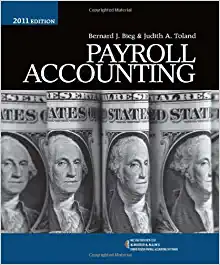Question
question 1 Under IFRS where ordinary shares are issued but not fully paid, the ordinary shares are treated in the calculation of basic EPS Group
question 1
Under IFRS where ordinary shares are issued but not fully paid, the ordinary shares are treated in the calculation of basic EPS
Group of answer choices
as a fraction of an ordinary share to the extent that they are entitled to participate in dividends.
in the same way as fully paid ordinary shares.
in the same way as warrants or options and are included only in diluted EPS.
are ignored.
Question 2
Earnings per share disclosures are required for
Group of answer choices
all entities.
entities whose ordinary shares and potential ordinary shares are publicly traded and entities that are in the process of issuing ordinary shares in public market.
entities whose ordinary shares and potential ordinary shares are publicly traded.
entities that are in the process of issuing ordinary shares in the public market.
Question 3
Which of the following features of preference share would most likely be opposed by ordinary shareholders?
Group of answer choices
Convertible
Participating
Redeemable
Callable
Question 4
For equity settled share-based payment transactions, the entity shall measure the goods or services received and the corresponding increase in equity
Group of answer choices
directly at the fair value of the goods or services.
directly at the fair value of the goods or service or indirectly at the fair value of the equity instruments.
indirectly at the fair value of the goods or services or directly at the fair value of the equity instruments.
directly at the fair value of the equity instruments.
Question 5
Which of the following statements is incorrect in relation to presentation of earnings per share?
- An entity shall present on the face of the income statement basic and diluted earnings per share for income from continuing operations.
- An entity that reports a discontinued operation is not required to disclose the basic and diluted earnings per share for the discontinued operation either on the face of the income statement or in the notes.
Group of answer choices
Both statements are false.
Both statements are true.
Only statement 2 is true.
Only Statement 1 is true.
Question 6
For transactions with employees and others providing similar services, the fair value of the equity instrument granted is measured on
Group of answer choices
exercise date.
grant date.
end of reporting period.
beginning of the year of grant.
Question 7
In accounting for share-appreciation rights plans, compensation expense is generally
Group of answer choices
recognized in the period of the grant.
not recognized because no excess of market price over the option price exists at the date of grant.
recognized in the period of exercise.
allocated over the service period of the employees.
Question 8
In computing basic loss per share, the annual preference dividend on cumulative preference shares should be
Group of answer choices
added to the net loss only when declared.
added to the net loss whether declared or not.
ignored.
deducted from the net loss whether declared or not.
Question 9
When the right to receive dividend is forfeited in any one year in which dividend is not declared, the preference share is said to be
Group of answer choices
Cumulative
Nonparticipating
Noncumulative
Participating
Question 10
In computing diluted earnings per share, dividends on convertible preference shares should be
Group of answer choices
deducted from net income, whether declared or not.
added to net income net of tax.
ignored.
deducted from net income only when declared.
Step by Step Solution
There are 3 Steps involved in it
Step: 1

Get Instant Access to Expert-Tailored Solutions
See step-by-step solutions with expert insights and AI powered tools for academic success
Step: 2

Step: 3

Ace Your Homework with AI
Get the answers you need in no time with our AI-driven, step-by-step assistance
Get Started


